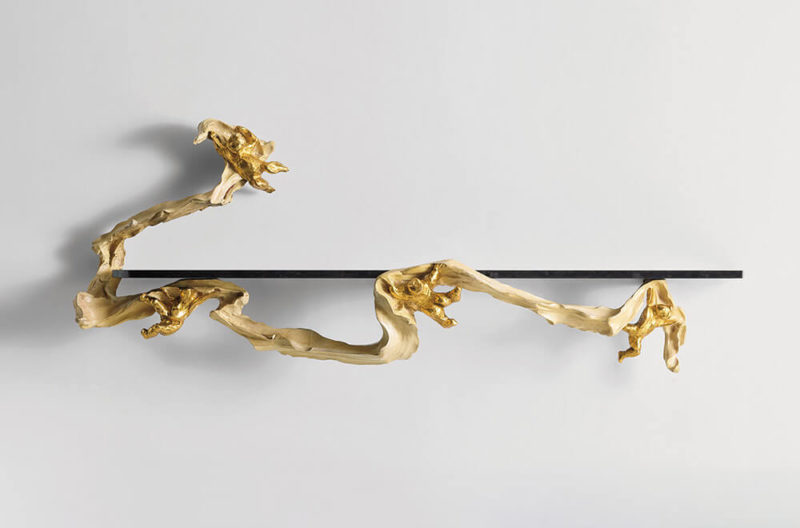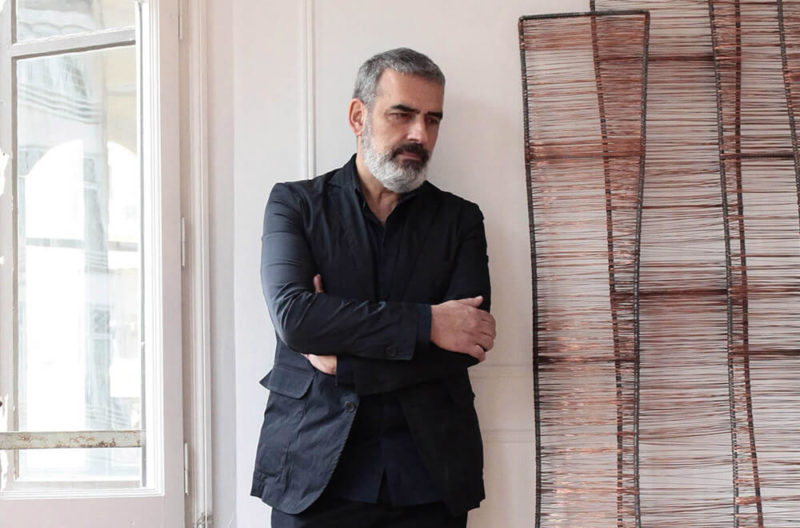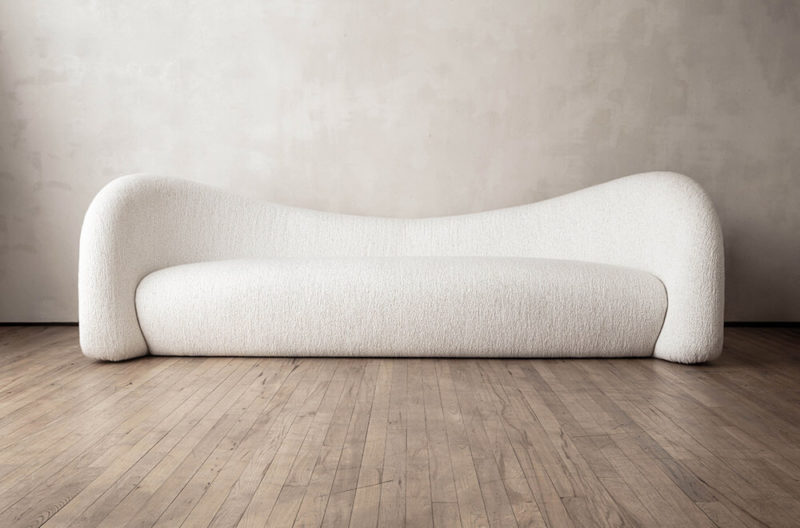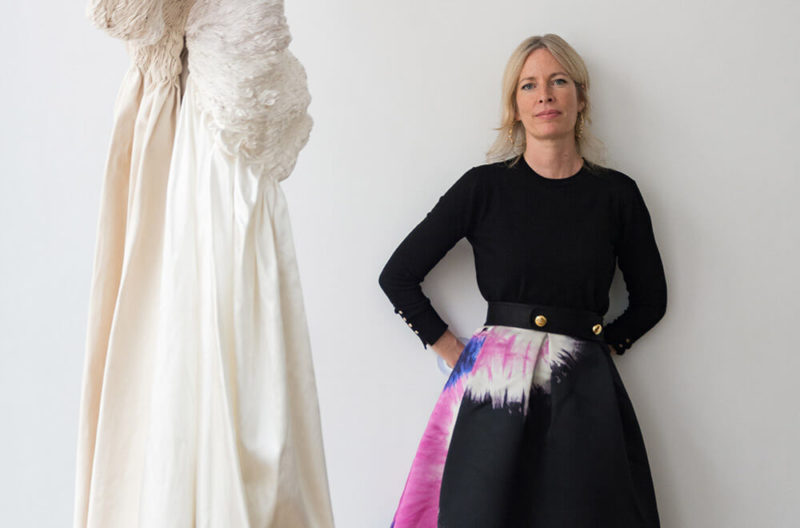PADesignartonline
Design fairs and galleries have rapidly upped their online presence – bringing new access and audiences to collectible design.
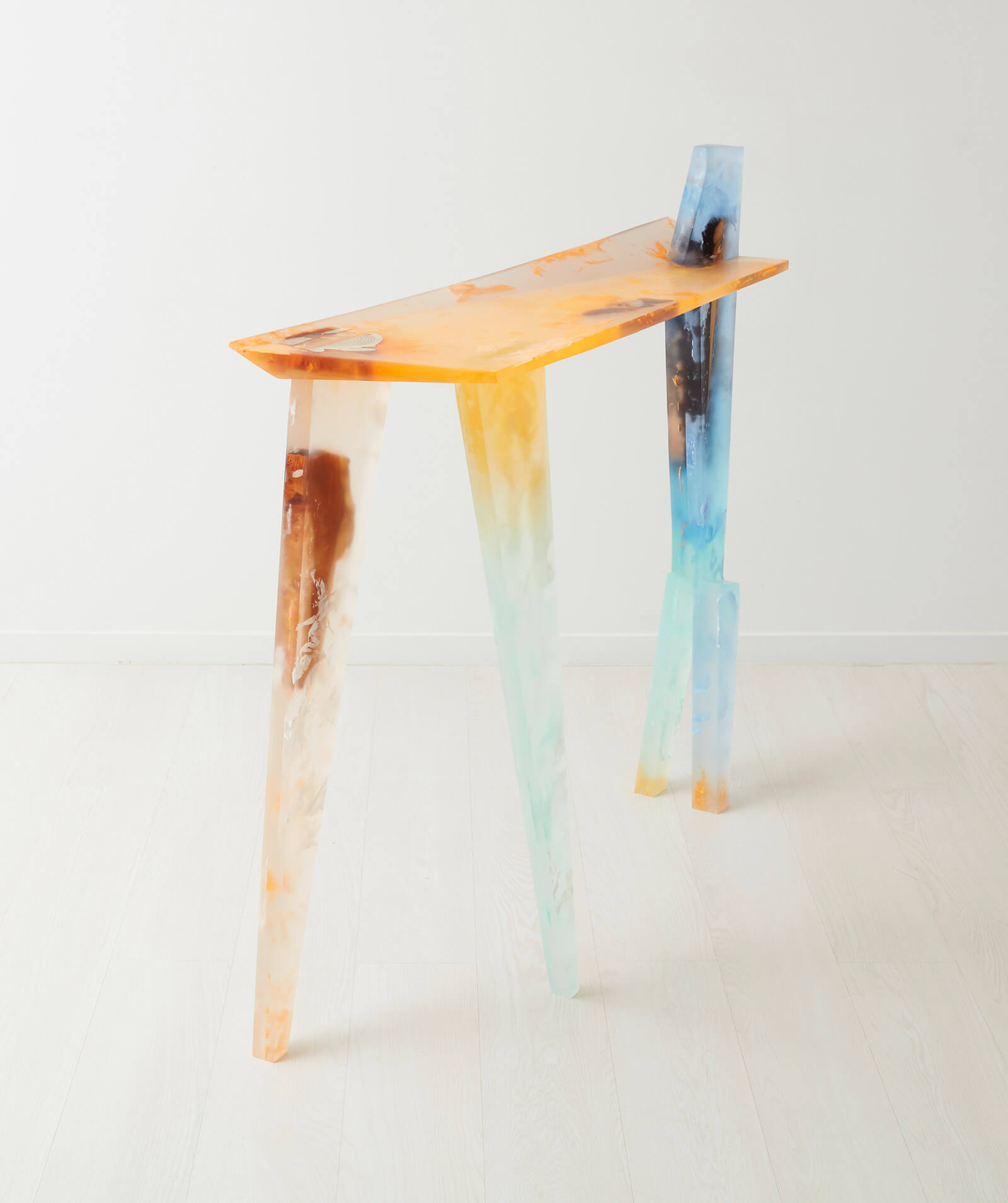
Jie Wu, ‘Out Jump’ console, 2020
COURTESY: Gallery FUMI
THIS WEEK, PATRICK Perrin, the founder of PAD, has launched a new, permanent online selling platform, PADesignartonline. Perrin conceived the idea for the platform a year ago through discussions with Alexandra Van Houtte, founder of Tagwalk, a fashion search engine. Perrin and Tagwalk have teamed up on the venture, which enables viewers to search for design, decorative arts objects and artworks by speciality, period, gallery, or keyword. Dozens of fairs have been cancelled due to the pandemic – PAD Paris and PAD London included. This new online platform is designed to support gallery business during lockdown, and beyond.

Hervé Van der Straeten, ‘Gueridon Volubile N°538’, 2017
COURTESY: Hervé Van der Straeten
“The pandemic accelerated the need for us to serve our exhibitors who are still seriously affected by [the COVID-19 health crisis],” Perrin says. “What we’re proposing is [at first] a free solution. We’re not intervening at all between the client – whether a collector, an interior designer or an architect – and the dealer, or the gallery. We’re just asking the exhibitors to send Tagwalk photos and descriptions [of objects] and update them every month. The more they do business, the better it is for us. It’s a win-win situation.”
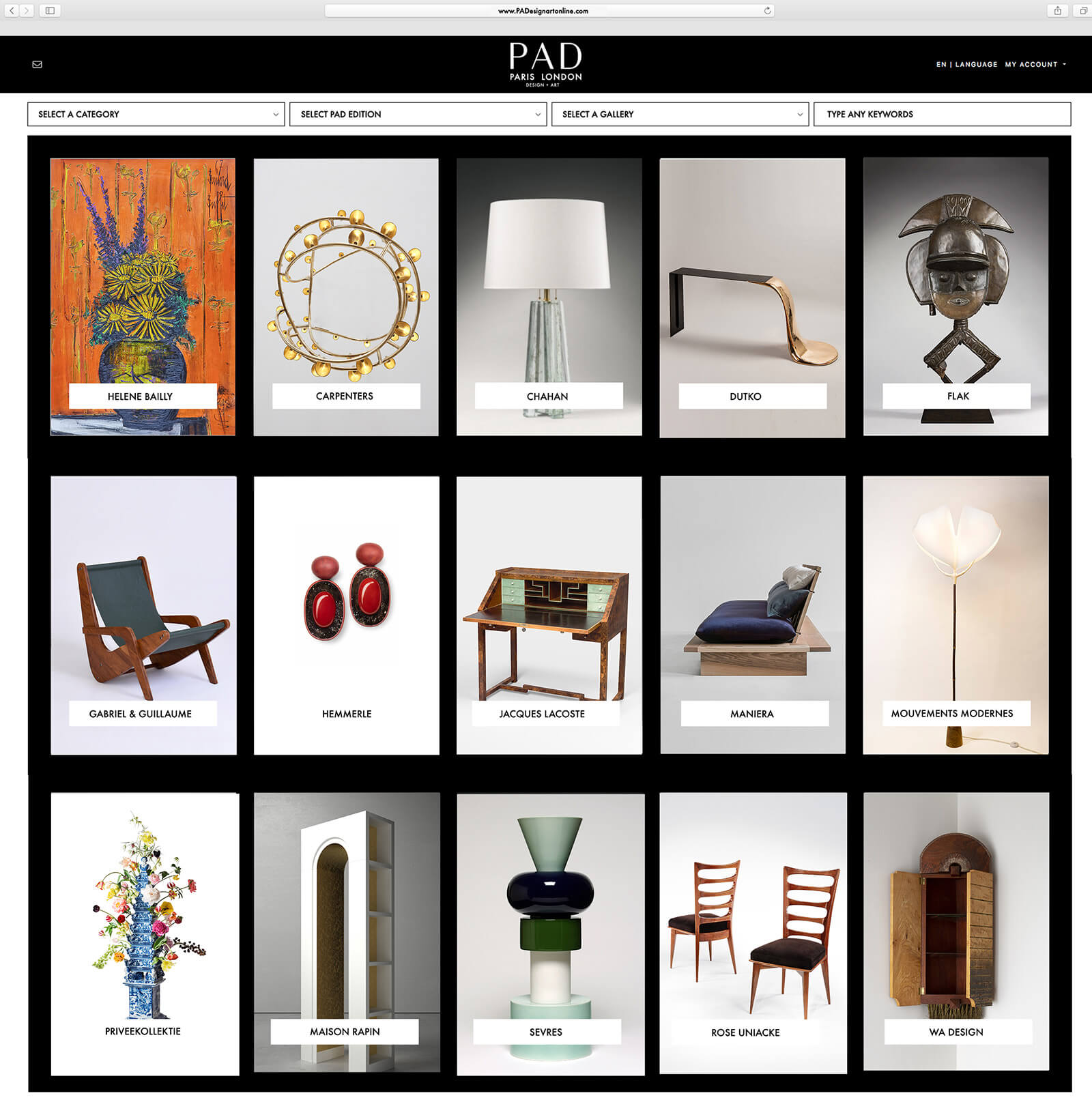
Example of PADesignartonline presentation
COURTESY: PADesignartonline
Galleries that participate in either PAD Paris or PAD London can present 25 objects; those that participate in both editions can present 50. Each month, up to five objects can be added to enrich and rejuvenate content. For the first year, PADesignartonline is reserved for PAD’s exhibitors. After that, other galleries and designers will be able to apply to participate and their applications will be evaluated by a selection committee. The platform is free for the first year and a fee will be charged henceforth.
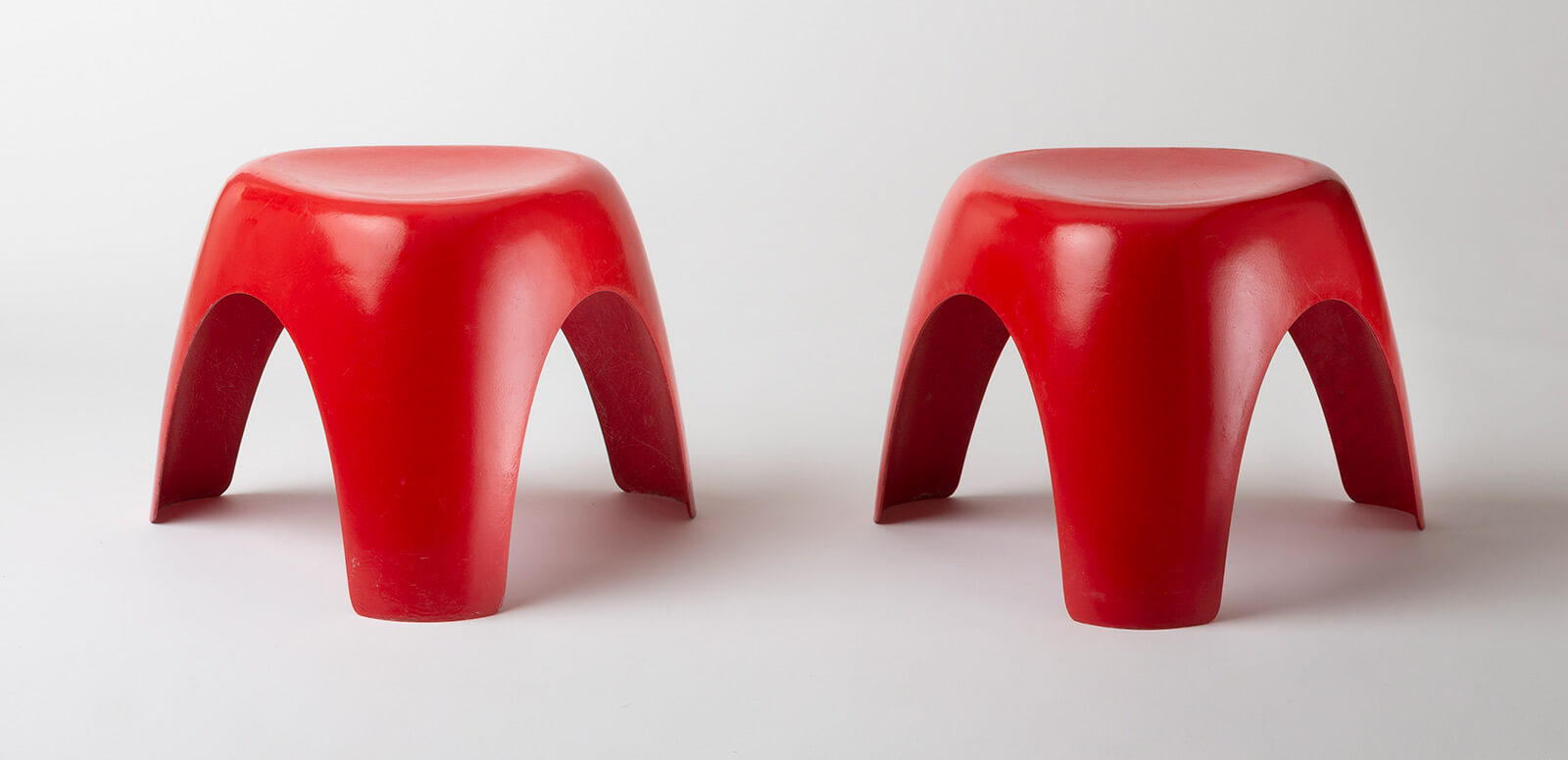
Sori Yanagi, ‘Pair of elephant stools, 1954
COURTESY: WA Design Gallery
So far, the platform features around 1,500 objects. Perrin expects most sales to be under the €20,000 mark. “Generally, there are more design objects priced under €20,000 than from €20,000 – €100,000 and I think that 90 percent of online transactions are for under €20,000,” he says.
In the long term, Perrin – who founded PAD Paris in 1998 and PAD London in 2007, followed by smaller iterations in Geneva and Monaco – hopes PADesignartonline will be complementary to the fair calendar. “I have a lot of friends who are interior designers and architects … An important part of their work is researching objects for their clients – this represents a very big market for galleries,” Perrin says. “There are periods when there are no art and design fairs,” he continues, “So it’s important to do something that will last and isn’t just a five-day viewing room.”
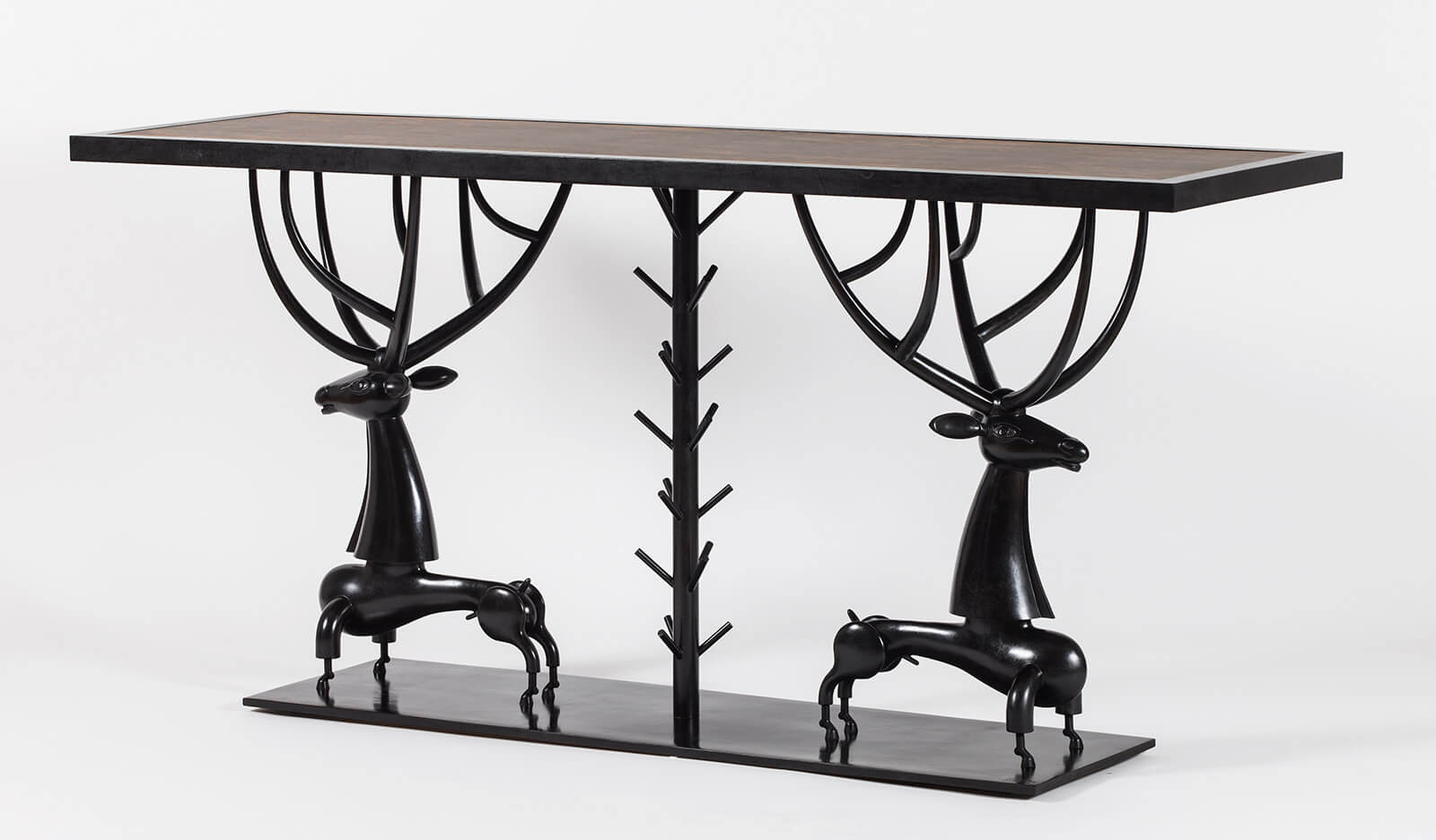
Jean-Marie Fiori, ‘Deer Console’, 2014
COURTESY: Dumonteil
Among the gallerists who are enthusiastic about the platform is Béatrice Saint-Laurent, founder of Galerie BSL in Paris. “I think PAD’s initiative is positive – it’s obvious that it has become essential for the fairs to increase their online visibility, as well as bringing this new service to their client galleries,” she says. Saint-Laurent is presenting “a large range of objects in all price ranges.” She adds, “This platform is an opportunity in terms of communication and sales – let’s see the results in the coming weeks.”
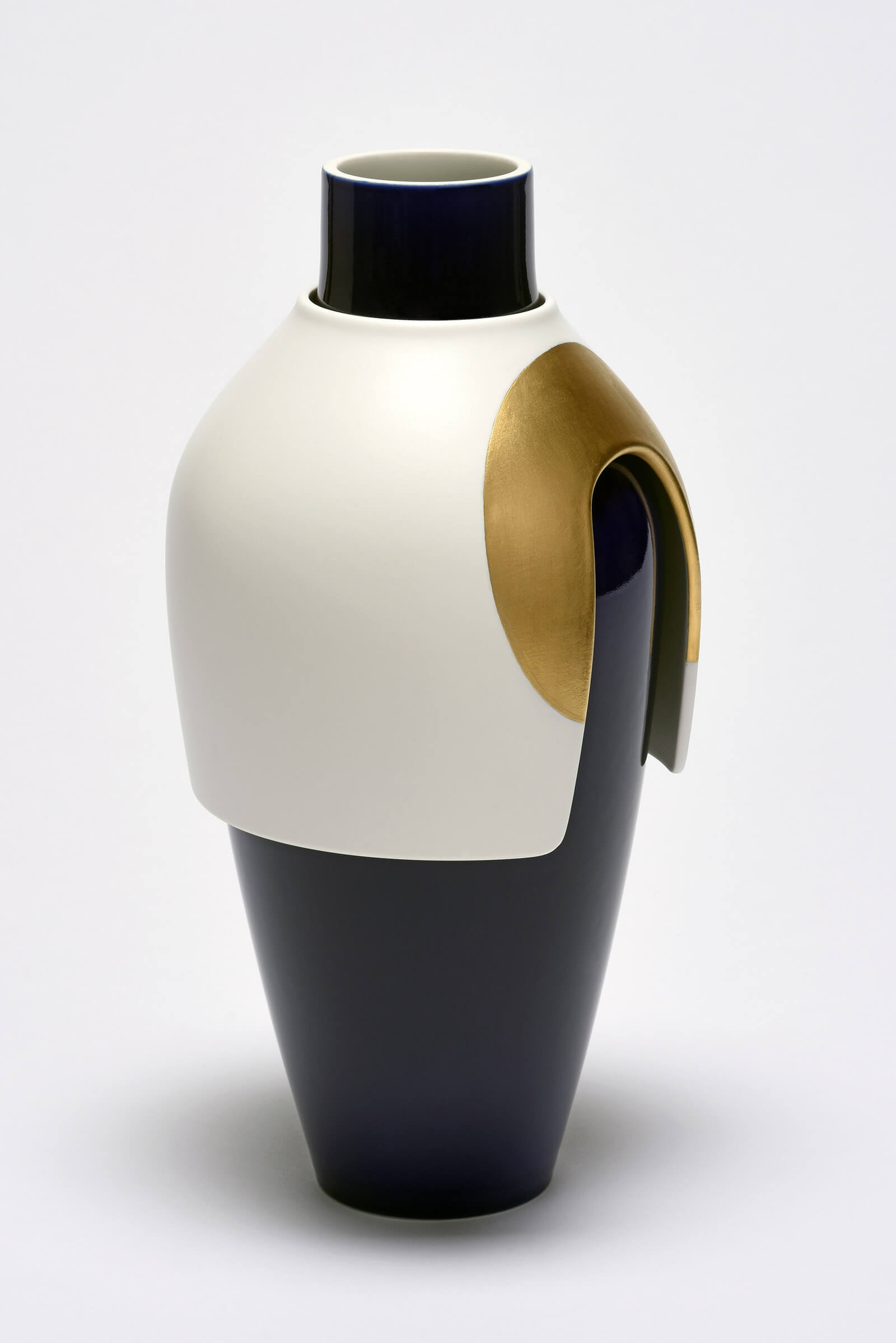
Matali Crasset, ‘Les capes no. 27’, 2018
COURTESY: Sèvres
“So far, the platform features around 1,500 objects from 75 galleries”

Pablo Picasso, ‘Vase à deux anses hautes, la reine’, 1953
COURTESY: Helene Bailly Gallery
“Perrin expects most sales to be under the €20,000 mark”
Gabrielle Ammann, founder of Ammann Gallery in Cologne, also commends the initiative. “It is as visually elegant as the PAD fairs and it was effortless to upload our works,” she says. “The support from Tagwalk and the PAD team is excellent and liaising with a platform coming from fashion is a great idea.”
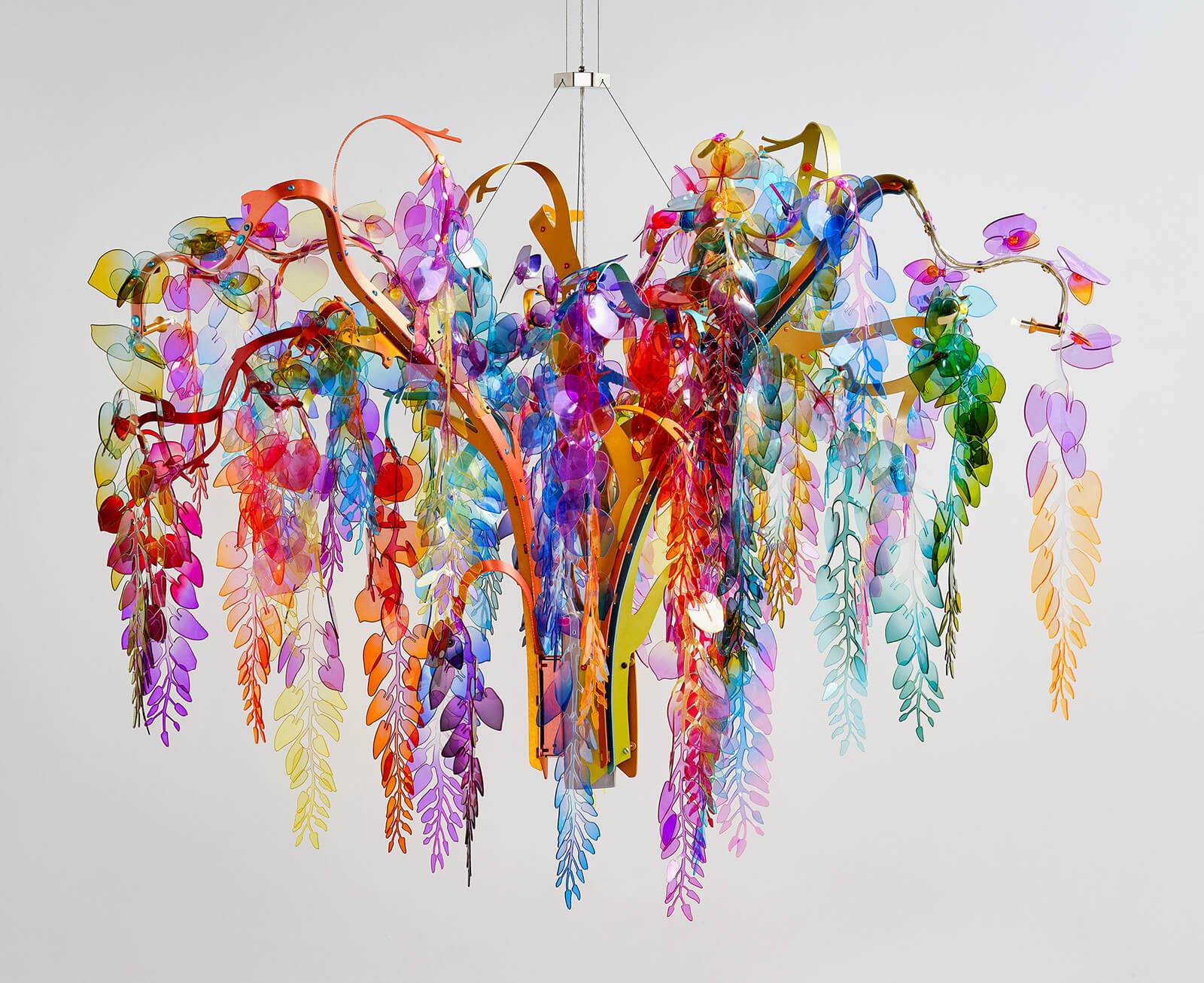
Bethan Laura Wood, ‘Wisteria’ chandelier, 2020
COURTESY: Nilufar
Ammann is showcasing new pieces by Studio Nucleo, such as the ‘Homage to Brancusi’ ladder (2020) – part of the ‘Souvenir of the Last Century’ series featuring twentieth-century pieces of wooden furniture encased, like relics, in resin – as well as bronze works from Satyendra Pakhalé’s ‘B.M. Horse’ series (2018). “Our expectations and wishes are to stay in close touch with the PAD community and show pieces that we, unfortunately, cannot present ‘live’ this year,” Ammann says.
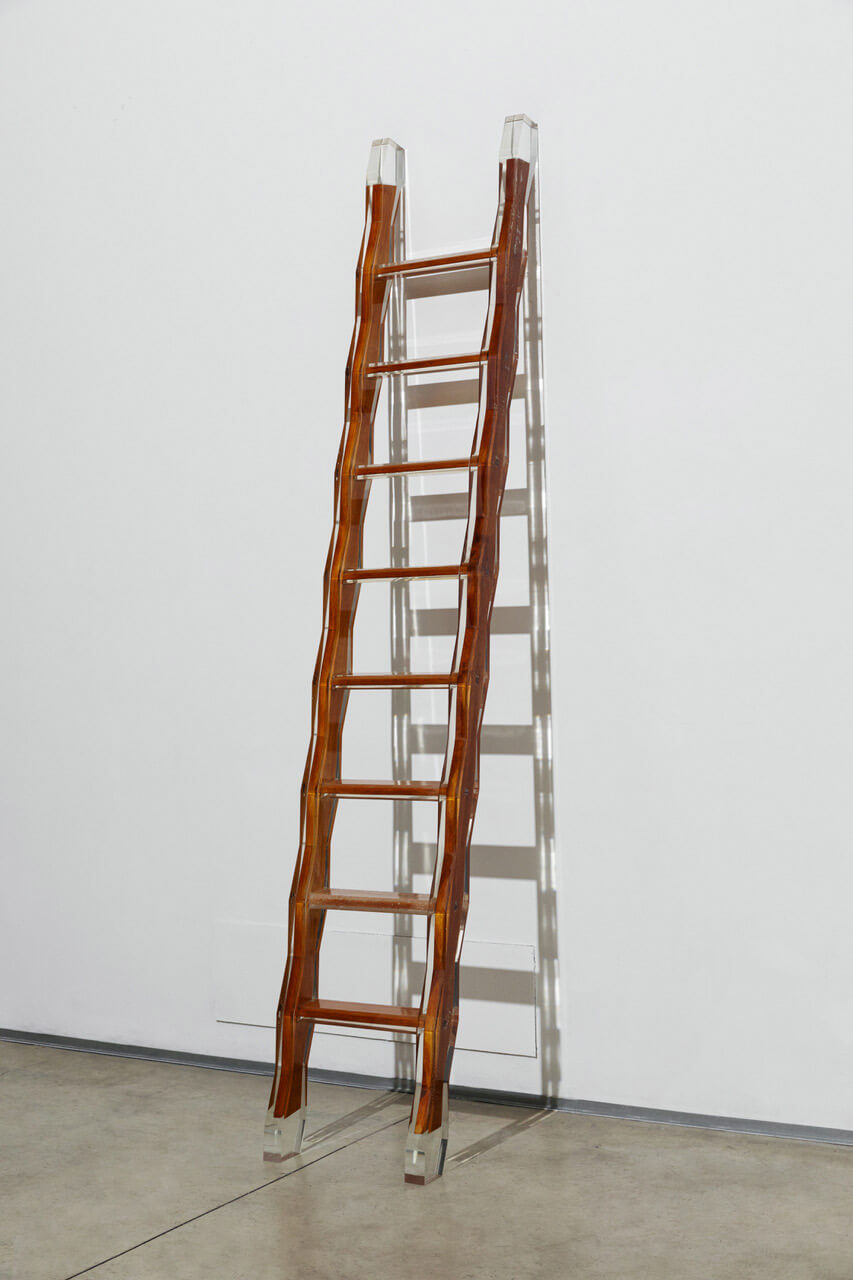
Studio Nucleo, ‘Souvenir Ladder’, 2020
COURTESY: Ammann Gallery
Although widespread, support is not unanimous. “We’re not participating in PAD’s online [venture] because they didn’t want to reimburse us for [the cancellation of] the fairs,” Philippe Jousse, founder of Jousse Entreprise in Paris, says. “I don’t want to work with them any more; we’ll just do one last fair because it’s been paid for.” A spokesman for PAD said that the fair reimbursement issue was confidential.

Andréa Salvetti, ‘Erosion’ table, 2017
COURTESY: Avant-Scène / PHOTOGRAPH: © Bruno Simon
Joining together, virtually, through branded initiatives, is one way forward. But galleries are also, independently, expanding their repertoire of ways to captivate online audiences. The Parisian gallerist Armel Soyer is offering a virtual tour of her current exhibition, ‘Energies Sensibles’, presenting striking new pieces of furniture and sculptures in welded metal by Julian Mayor and watercolours by Alix Waline. Prices for Mayor’s works vary from €3,800-€18,500 whereas Waline’s watercolours are priced €2,500-€3,500.
Due to open on 5th November, the show (running until 5th January) had been installed before the second French lockdown started at the end of October. The playful 360-degree video, produced by the French start-up Artview, enables visitors to navigate around the space, click on different pieces and view them from multiple perspectives.
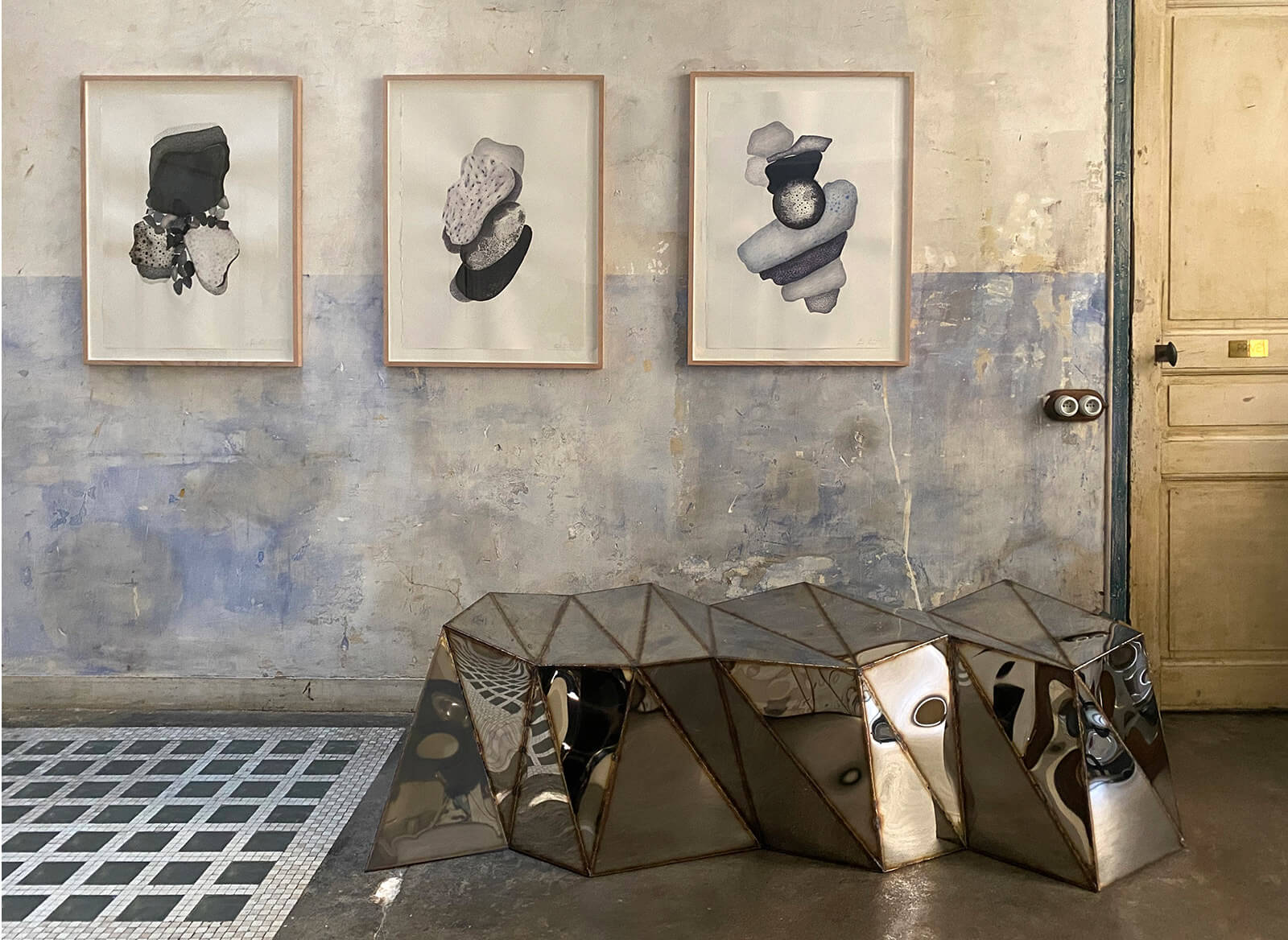
Exhibition view, ‘Energies Sensibles’, with ‘Powerlines’, 2020 by Julian Mayor
COURTESY: Armel Soyer
“Julian Mayor had been working on his new pieces for months, so it was dramatically disappointing that the second lockdown happened just before the show could open,” says Soyer, who had made a similar video of her stand at last year’s PAD. “Artview came and scanned the gallery from several places and then created its volume virtually so you can move to the middle of the room and turn around Julian’s bar and sculpture to see all their facets.”
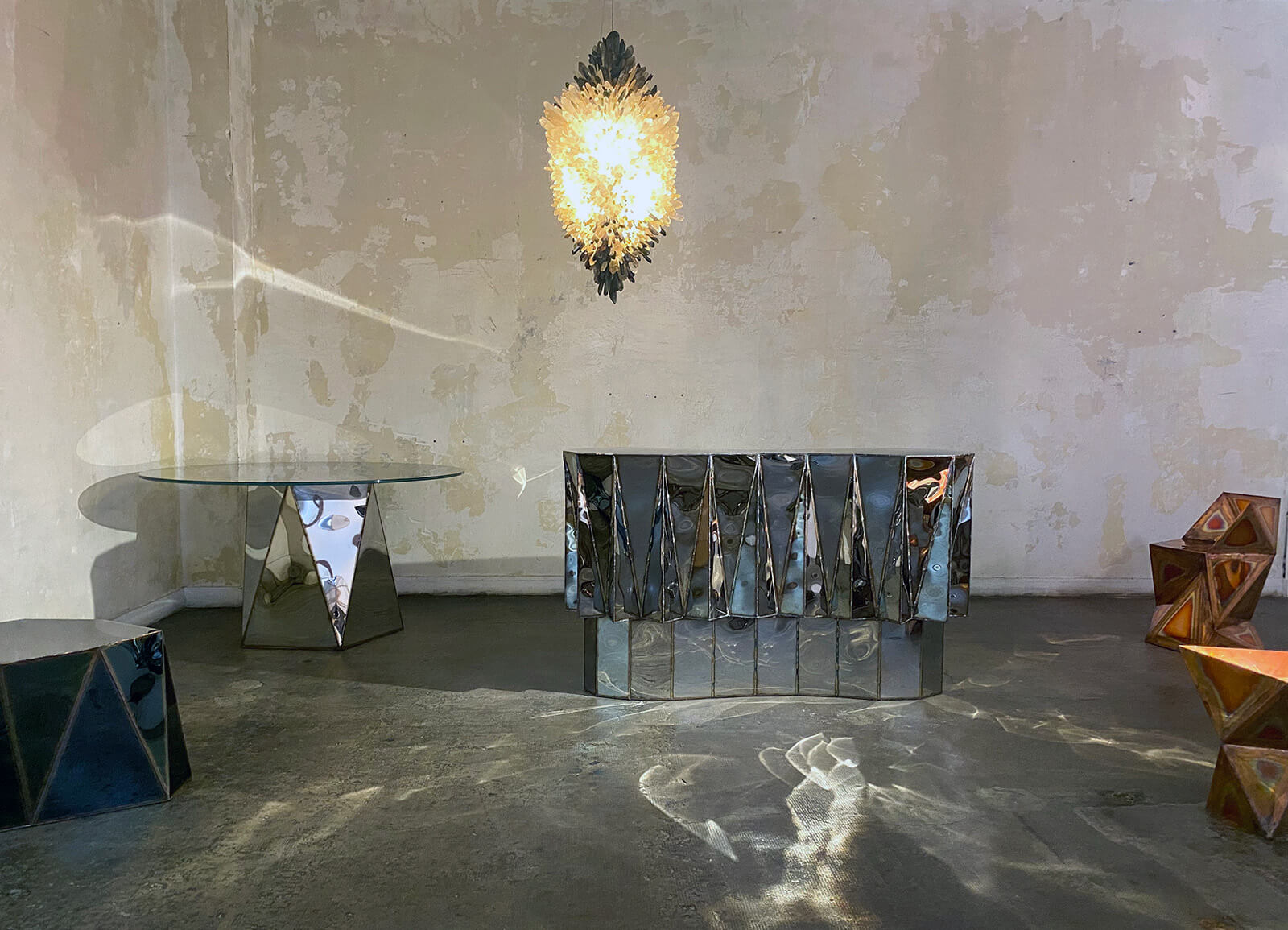
Exhibition view, ‘Energies Sensibles’, 2020, with work by Julian Mayor and Alix Waline
COURTESY: Armel Soyer
Soyer thinks such videos are complementary to images of the individual works, but “photos are still indispensable to interior designers presenting mood boards to their clients.” Adamant that the trend is here to stay, she adds: “The pandemic has accelerated the virtual [innovations] and pushed us to find alternative solutions [to galleries being closed]. For a solo show, it’s a good investment even after the confinement. We’ll see what this generates next year and, if it proves beneficial, we’ll continue.”
Virtual viewing rooms have become ubiquitous during the pandemic, as what was previously the domain of blue-chip galleries has opened up to small and medium-sized ones. “The big international galleries, like Gagosian, Ropac and David Zwirner, had already started to do this as they had more [financial] means but now other galleries are using them,” says Hugo Dufon, a director at Galerie Dutko, a decorative arts gallery that launched two online-only exhibitions on the artists Jean-Pierre Pincemin and Ted Larsen this autumn.
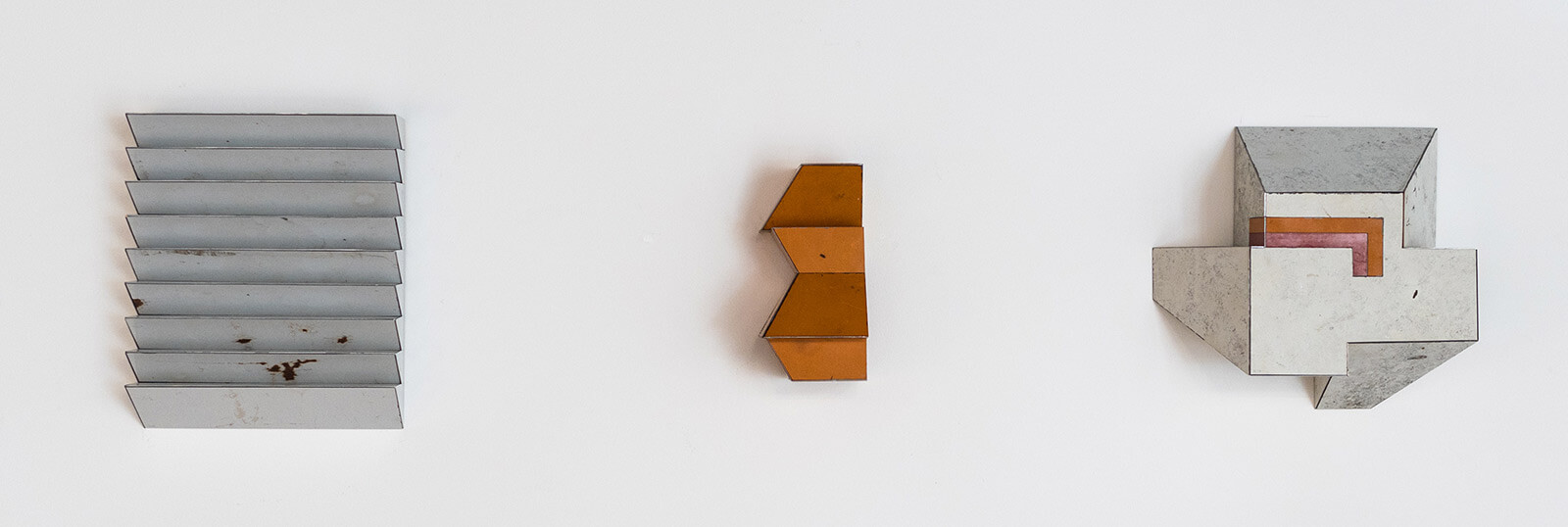
(Left to right) Ted Larsen, ‘Ourselves Alone’, 2019; ‘Single Copy, 2018; ‘Almost Candid’, 2018
COURTESY: Armel Soyer
The Left Bank antique dealer Alexandre Biaggi recently launched his first online-only exhibition with a virtual-tour video of the eclectic pieces installed in his gallery. Titled ‘De Pompé i à Gio Ponti, de Gio Ponti à Mauro Fabbro’ and running until 24th December, it is a tribute to Italian art and design.
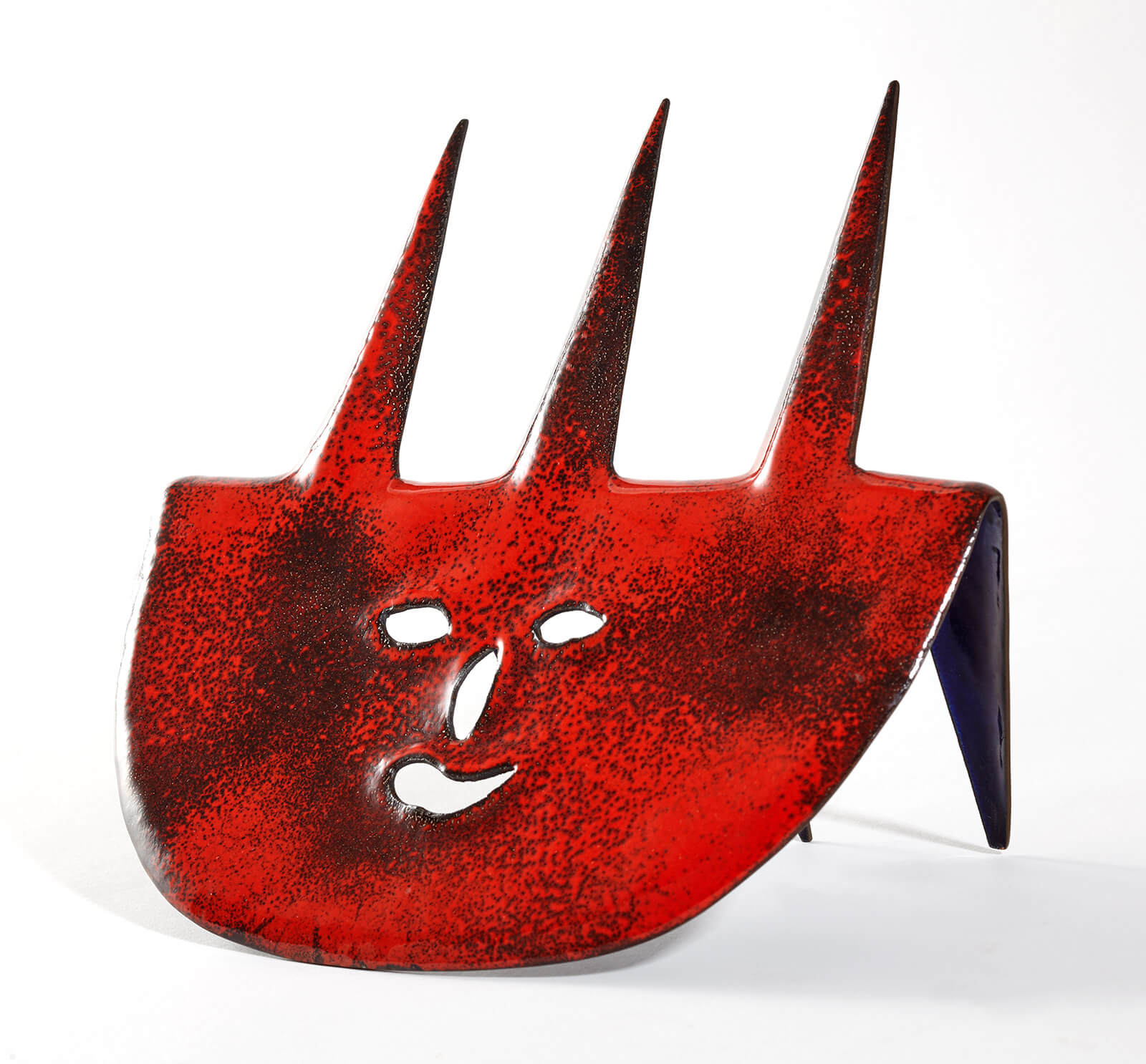
Gio Ponti, ‘Red Devil with three points’, 1956
COURTESY: Alexandre Biaggi
Brought together are: a bronze sculpture of Apollo Citharoedus cast in Naples in 1900; a ‘Red Devil’ enamelled copper mask as well as coffee tables by Gio Ponti (all from 1956); a vase adorned with butterflies and hand motifs from 1937 by Piero Fornasetti; and an ‘Onda’ console (2019), made from quartz and a wavy, gold-painted wood base by Mauro Fabbro.
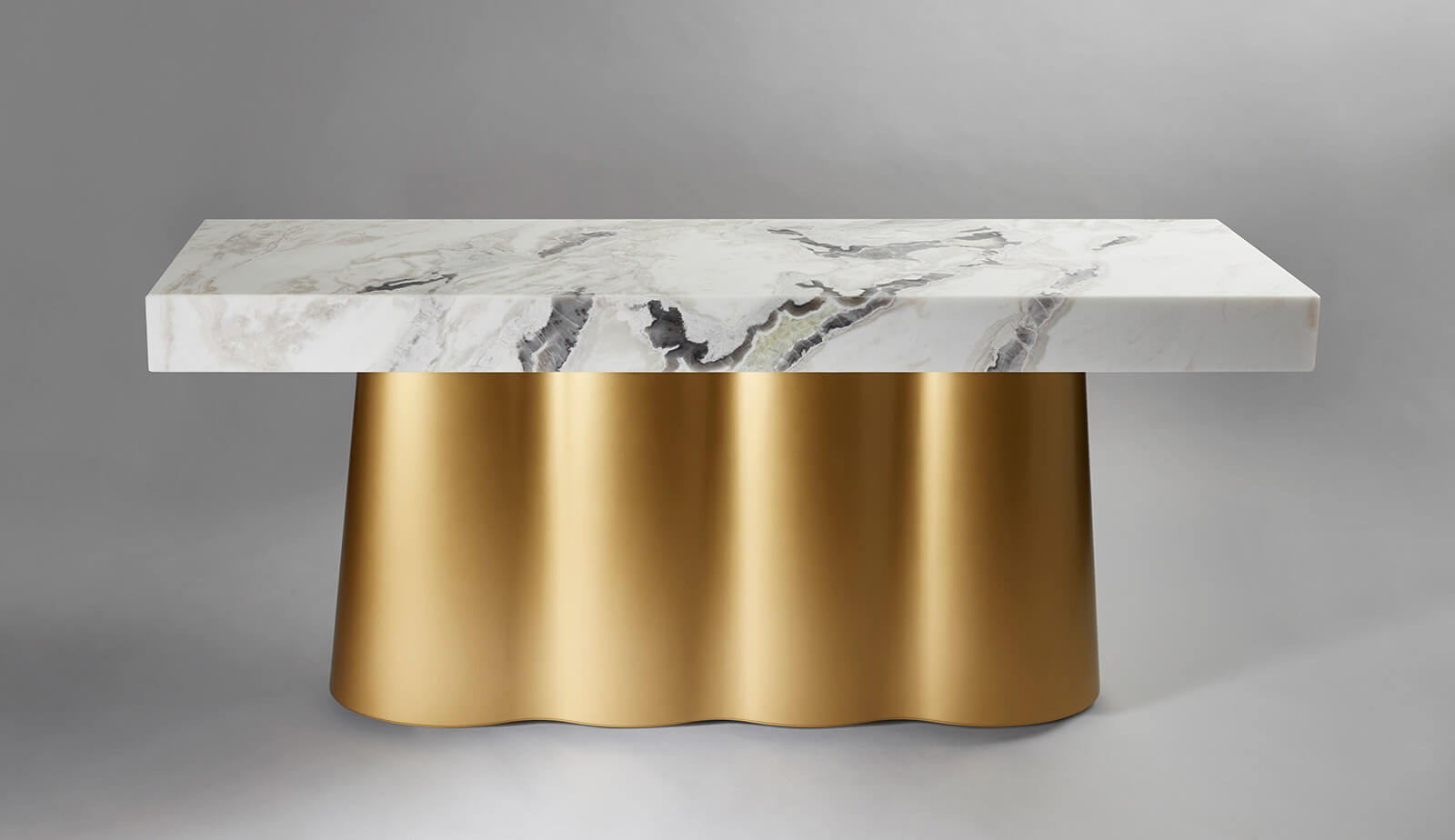
Mauro Fabbro, ‘Onda’ console, 2019
COURTESY: Alexandre Biaggi
“What I wanted to communicate through this thematic exhibition is a choice and a personal identity transmitted by the gallery at a time when the galleries are closed,” Biaggi says. “It’s a very interesting challenge because it obliges us to think about what’s fundamental about our trade as antique dealers, which I consider to be expertise and the transmission of certain emotions through objects.”
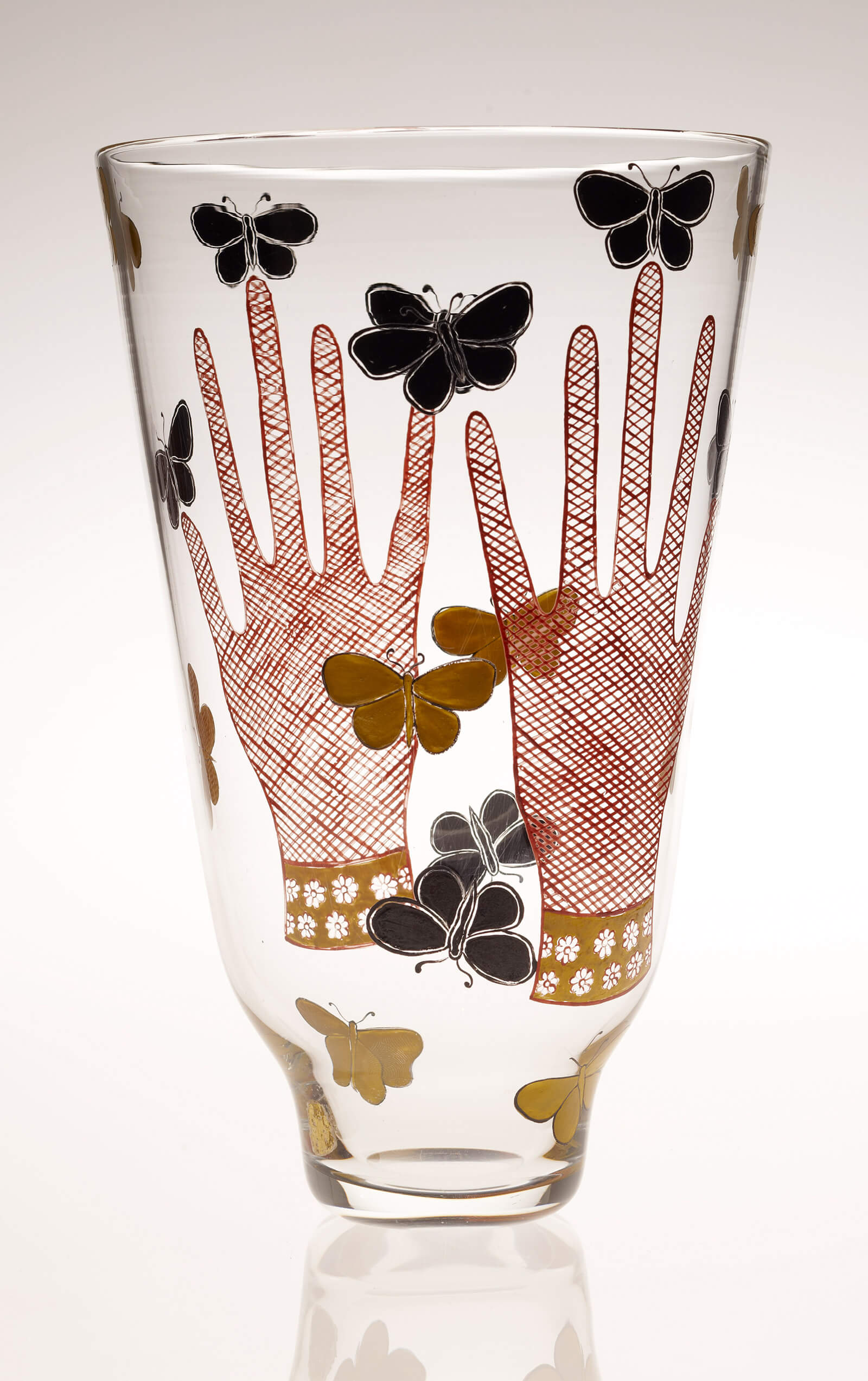
Piero Fornasetti, ‘Butterfly Vase’, 1937
COURTESY: Alexandre Biaggi
Although the pandemic prompted Biaggi to rethink his online strategy, he believes that it was inevitable: “The situation has confirmed a movement that had existed for a few years. Today, galleries have become a bit obsolete and less visited because people have been concentrating more on attending international fairs, which are now closed. The only way that a dealer can have visibility is by the internet.”
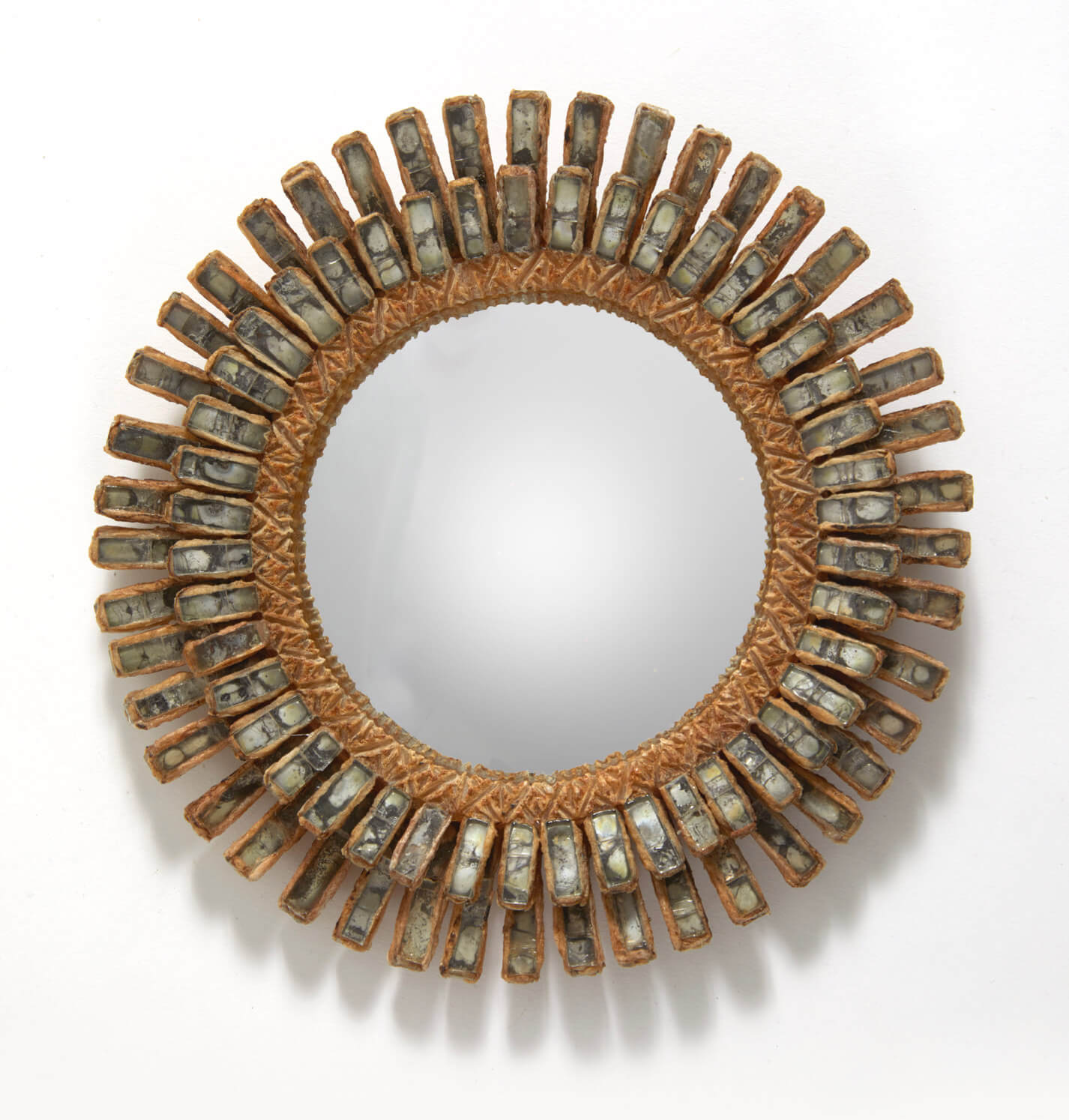
Line Vautrin, ‘Roman Mirror’, circa 1955
COURTESY: Galerie Marcilhac
Biaggi anticipates that the need for innovative online platforms will continue to grow. “I don’t think fairs will bring together as many people as before; I fear it will be like after [the World Trade Center terrorist attacks on] September 11th, 2001, when nobody wanted to travel,” he muses. “When one of the first e-commerce sites was created, it didn’t work at all. Then after September 11th, it took off.”
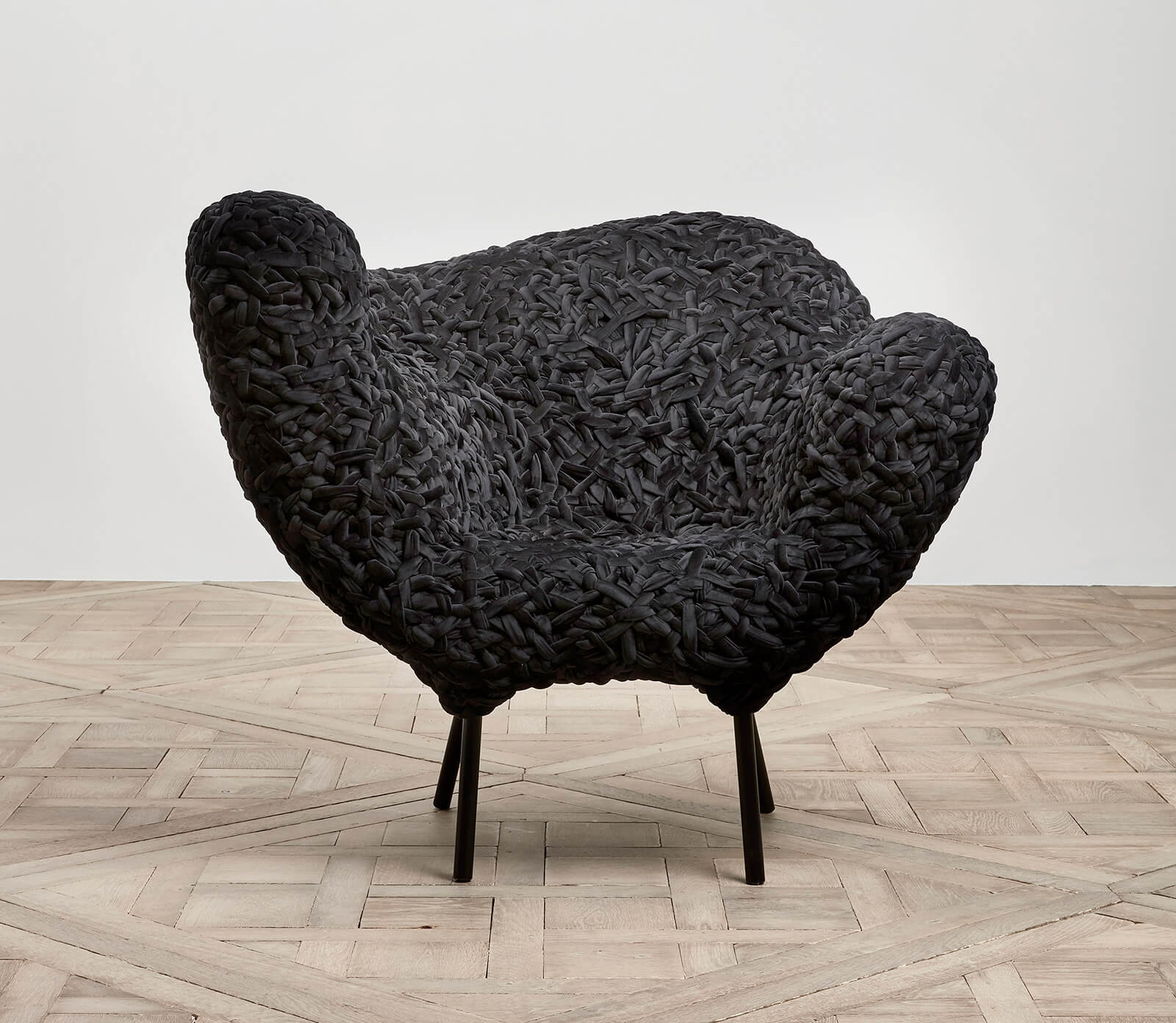
Campana Brothers, ‘Arachnid Chair’, 2017
COURTESY: Carpenters Workshop Gallery
For Biaggi, the game-changer of virtual platforms feels particularly evolutionary. “When I started this trade, first in the Paris flea market and then with my first gallery on Rue Jacob in 1989 before opening on Rue de Seine in 1996, the only way to sell objects was if clients came to your space. There wasn’t even a fax machine! We used to send Polaroids of pieces to our clients; it was all very artisanal. My trade stays the same, but the way of showing my objects becomes different.”
Indeed, the new paradigm of PADesignartonline confirms just how exponentially the design world is shifting.
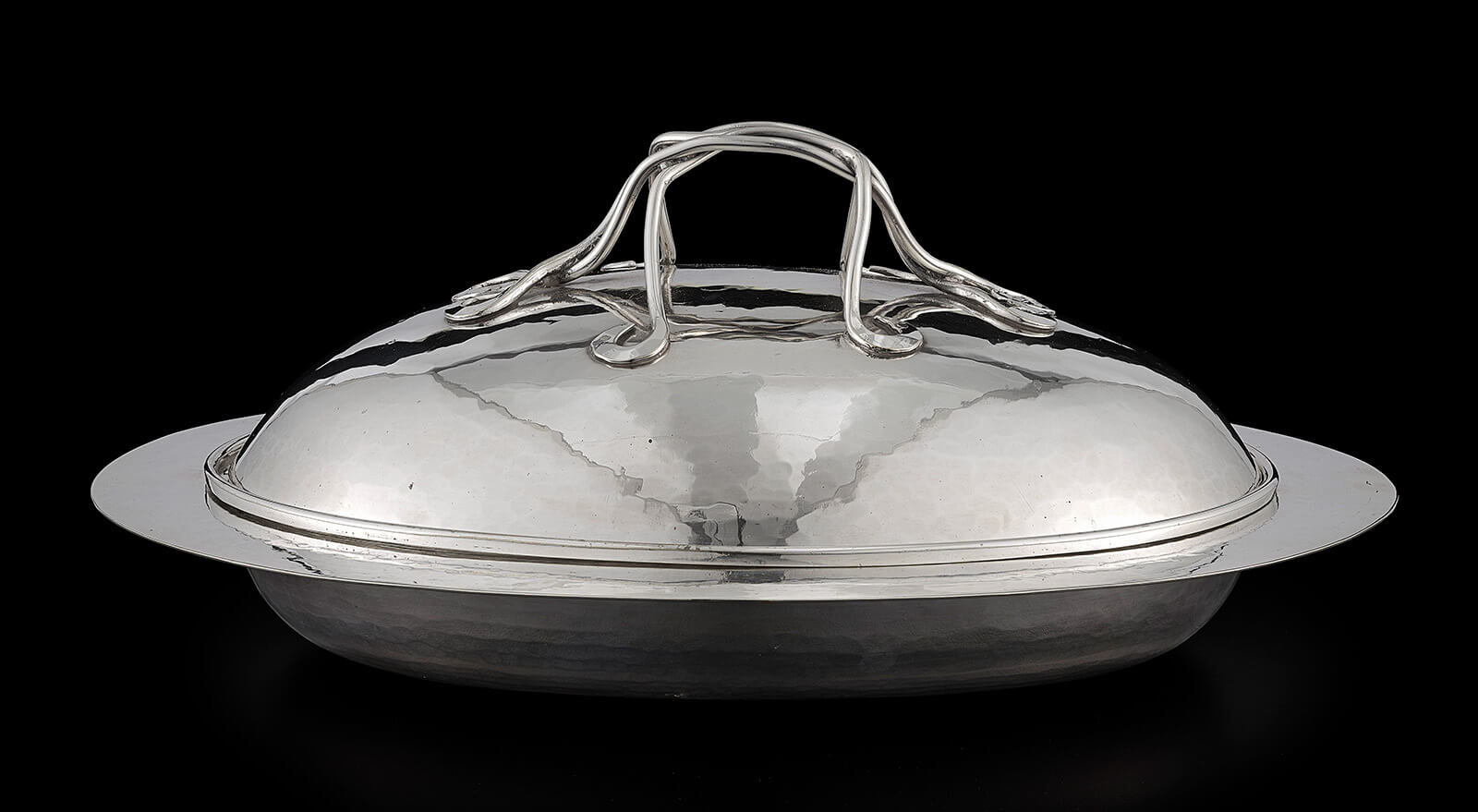
C. R. Ashbee, ‘Tureen’, circa 1900.
COURTESY: Blairman & Sons
PADesignartonline – the online platform for PAD.
Galerie BSL – commissions, produces and exhibits refined and innovative works that challenge the established borders of art and design.
Ammann Gallery – a globally respected gallerist and one of the leading forces and taste-makers within the collectible design market.
Armel Soyer – devoted to the 21st century decorative arts.
Galerie Dutko – forging relationships with contemporary artists and designers, and frequently commissioning limited edition works to complement Art Deco findings.
Galerie Alexandre Biaggi – decoration, furniture and contemporary design.




